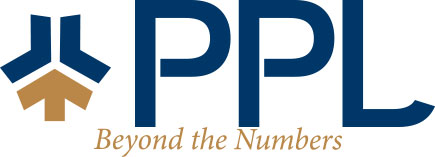Owning a small business can be overwhelming at times. Bookkeeping for small business owners could be even more overwhelming. Below are 10 bookkeeping tips to help you manage your bookkeeping.
Tip # 1 Keep your business and personal finances separate.
- Comingling business and personal finances is a common mistake made by small business owners.
- Not only can comingling funds erode your limited liability, but it may also distort the financial health of your business.
Tip # 2 Keep up with your accounting in a user-friendly software such as QuickBooks or Xero.
- Set aside time weekly to organize and record your income and expenses.
- Review your financial statements at least monthly for trends and errors.
- Reconcile your bank and credit card accounts monthly.
- Have your CPA review your financials at least quarterly for insight and planning.
Tip # 3 Know the difference between a legitimate business expense and a personal expense.
- A business expense must be both ordinary and necessary to be deductible. An ordinary expense is one that is common and accepted in your trade or business. A necessary expense is one that is helpful and appropriate for your trade or business.
- Combining business travel and leisure is common for small business owners. It is important to understand what is deductible and what is not. For example, extended stays and family travel expenses are generally not deductible.
Tip # 4 Know how to read your financial statements.
- Your Balance Sheet and Profit & Loss work in tandem to provide a picture of financial condition.
- Cash is king. Understanding your Statement of Cash Flows is critical to reconciling the differences between cash and net income.
- Comparative financial statements are useful for recognizing trends and potential errors.
Tip # 5 Keep up to date with tax filings.
- Failure to timely and accurately file required forms generally results in unnecessary penalties and interest.
Tip # 6 Classify employees and 1099 contractors correctly.
- 1099 contractors are generally those who maintain their own work schedule, use their own tools, and work for others. Other considerations may apply. To assist businesses, the IRS has established a 20-point checklist to help determine if a person is an employee or independent contractor in relation to the activities they provide to the business.
- Small business owners often misclassify employees as 1099 contractors to save payroll taxes and other employee costs. It is important to understand the significant consequences of misclassification fully.
Tip #7 Automate your bookkeeping when possible.
- Use cloud-based software that synchronizes with your bank and credit card companies.
- Get training from your accountant on the most efficient way to use your software.
Tip # 8 Consider implementing a retirement plan.
- Most employer contributions to retirement plans (401(k), SEP, SIMPLE) are tax deductible.
- In most plans, business owners can make tax deferred contributions to their own retirement accounts.
Tip # 9 Save your receipts.
- Keep receipts, bank statements, invoices, bills, payroll records and any other pertinent documents to substantiate your income and expenses. PPL recommends keeping records to substantiate tax returns for six years from the date you filed your tax return.
Tip #10 Get help from PPL.
- We are a small business serving small businesses. We can help you with your bookkeeping needs, from an accounting system’s set-up to full back-office accounting. We work with clients to create an efficient system that meets their needs.
We hope you will consider some of our useful bookkeeping tips. PPL CPA is here for you to provide advice, bookkeeping services, tax services and payroll. Contact one of our team members today to learn how we can help you with your bookkeeping needs.

